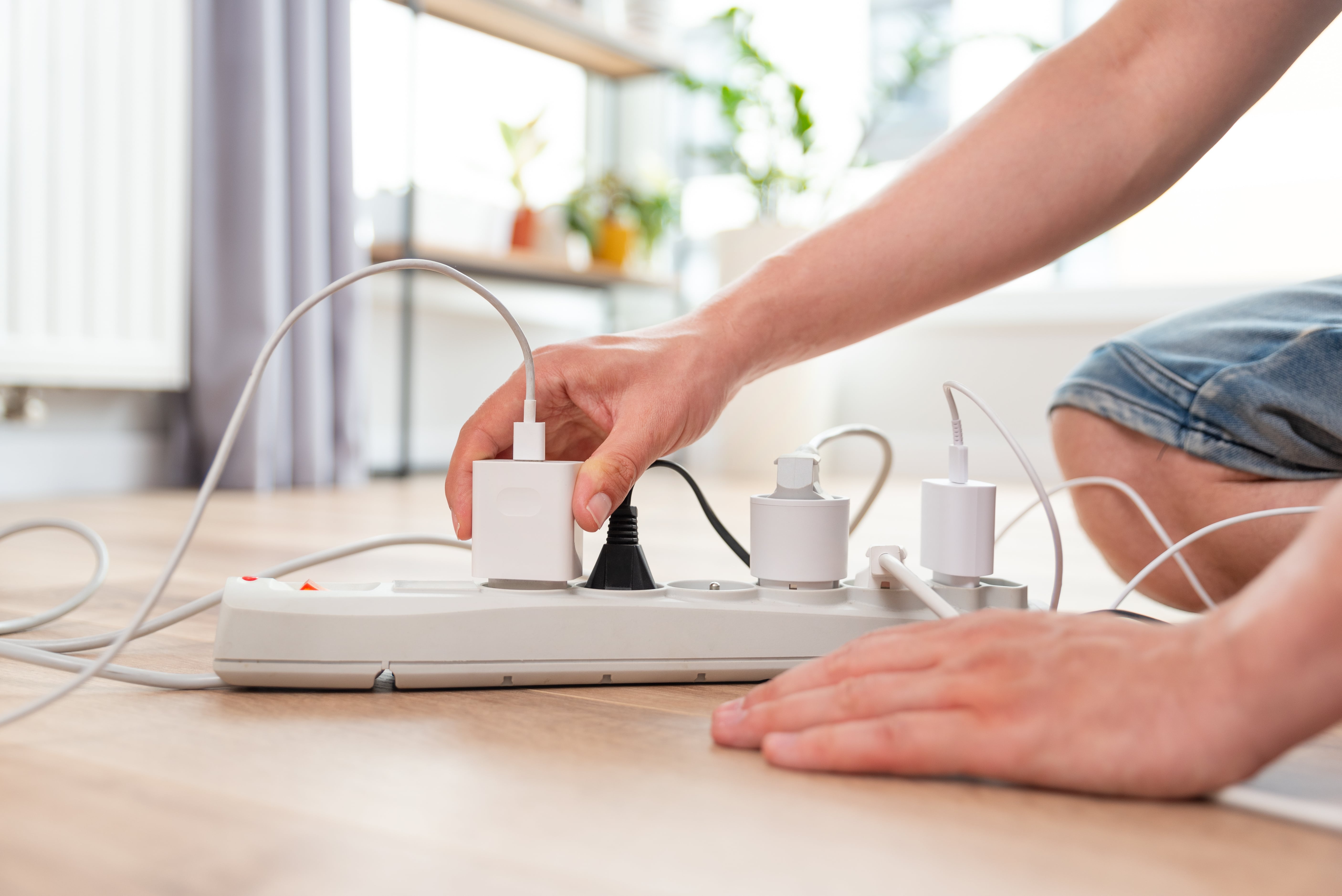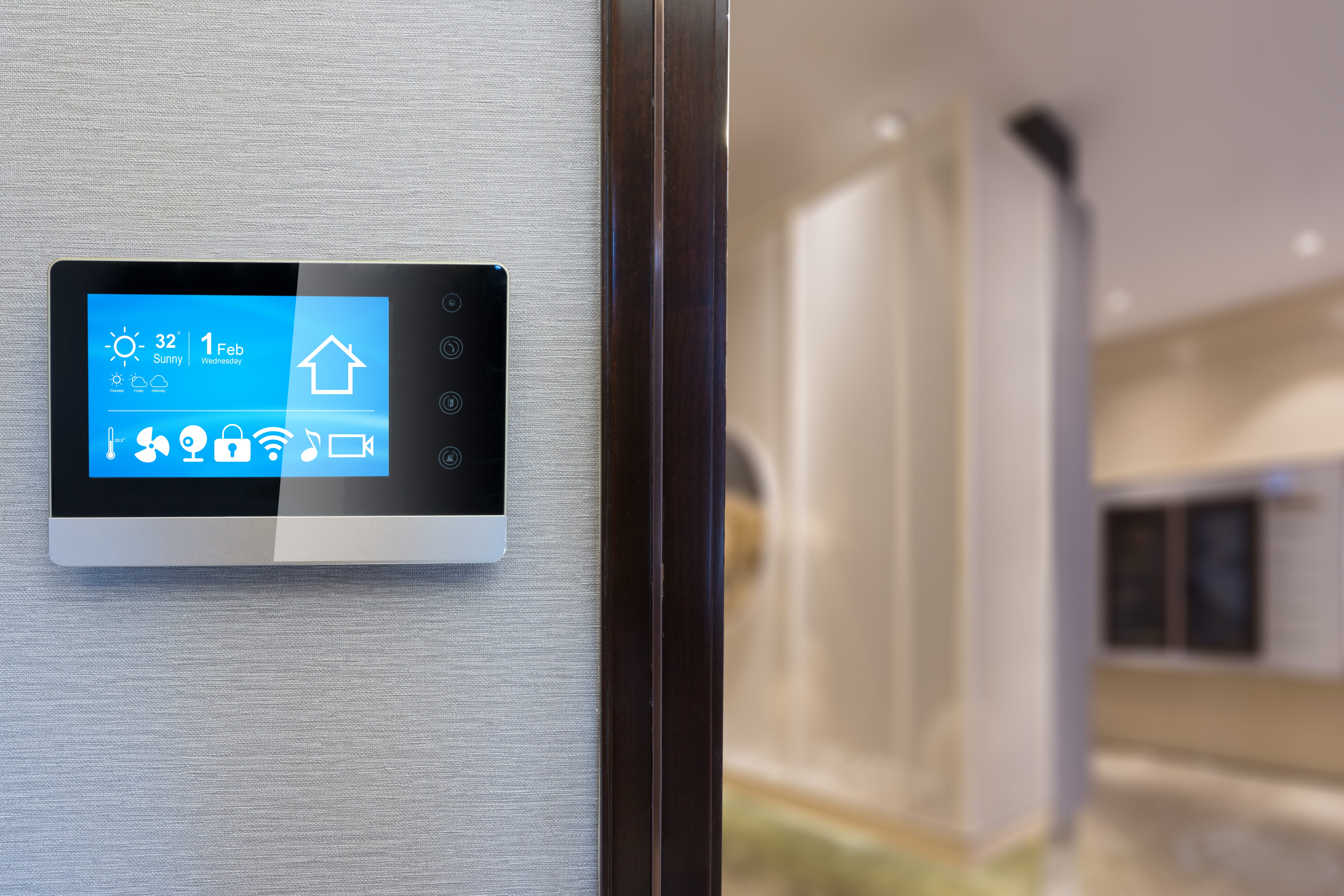You likely understand the importance of saving energy and may have even taken steps to make your home energy-efficient, such as installing new windows or even purchasing ENERGY STAR® appliances. But while these upgrades help lower your energy consumption, they’re only one part of the process: it’s also important to change your everyday habits.
Simple energy saving ideas like turning off the lights when you don’t need them or unplugging appliances that are not in use can have a huge impact on your energy consumption and could even help save you money.
For example, as the U.S. Energy Department’s SEE Action initiative noted, LED or CFL lightbulbs will pull less electricity for home lighting but can still waste energy if run unnecessarily. In fact, if you forget to turn off the lights when you leave the house, you’re wasting as much as 11% of your total energy use.
By making some small changes and adjusting your everyday habits, you could conserve energy and lower your electricity expenses. Follow these energy-saving tips to reduce power consumption and save money.
{{CTA-thermostat-right-plan}}
Change out your light bulbs
Traditional incandescent lightbulbs consume a significant amount of electricity, the majority of which goes to heat, not lighting. They also must be replaced more frequently than energy-efficient alternatives, like CFL and LED bulbs.
One of the most effective ways to save energy is to change the lightbulbs in your home to CFLs or LEDs, which use anywhere from 25% to 80% less electricity and can last up to 25 times longer. These energy-efficient options cost more, but they also last longer and use energy more efficiently, meaning they could save you money in the long term.
Use smart power strips
Did you know that your electronics still use electricity even when they’re turned off? This energy consumption is known as “phantom loads” and can be a major source of energy waste. In fact, it’s estimated that 75% of the energy used to power household electronics is consumed when they’re off or in standby.
Smart or advanced power strips shut off the power to these electronics when they’re not in use, helping you to reduce energy consumption. You can program the power to turn off at specific times or during periods of inactivity.
Wash your clothes in cold water
Laundry can be a very energy-intensive process, especially if you use warm or hot water to wash your clothes. Using cold water can save you money on your energy costs, and some research indicates that it could also increase the lifespan of your clothes by avoiding heat damage.
Replace air filters
A clean air filter puts significantly less strain on your HVAC system and could help you avoid costly repairs. Change your air filters frequently, at least every three months. Doing so could decrease your household energy consumption by as much as 15%.
Take advantage of natural light
Lighting your home uses quite a bit of energy, so one of the best ways to conserve energy is to open those blinds and curtains and enjoy the natural light whenever possible. On colder days, the sunlight can also help keep your home warm, so you don’t have to turn on the heating system.
Bundle up
Put on a sweater or some cozy socks to avoid turning up the heat in your home. If you wear more clothes indoors, your heating system won’t have to work as hard, enabling you to potentially save money and use less energy.
Take shorter, cooler showers
You can cut down on the energy your hot water heater uses by keeping your showers a little cooler and faster. The average shower uses 2.5 gallons of water a minute, and if you shower just four minutes less, you can save over 3,600 gallons a year.
Prevent air leaks
A significant amount of heat is lost through cracks in windows and doors, as well as leaky air ducts in your home. Insulating your heating ducts, hot water pipes and sealing air leaks is a great way to save energy at home.
Turn off and unplug your computer
If you’re not going to use your laptop or desktop computer, don’t let it go to the screensaver, which uses more electricity. Instead, turn it off and unplug it, which could help reduce your electric expenses.
Rethink how you use your appliances
If you need ideas on how to save energy at home, take a look at your appliances. Washers run most efficiently with full loads, so avoid doing the dishes or laundry until you have a full load. You’ll also end up running the machines less often, saving energy.
Take time to make sure your appliances are clean, free of gunk and dust that can limit their efficiency. And avoid standing in front of an open refrigerator door, which forces the fridge to work harder to stay cold.
Let Mother Nature help you save energy
You can also look to Mother Nature for inspiration on how to save electricity. Air-drying clothes and dishes can limit your use of energy-consuming appliances. You can also increase natural light in your home by painting your walls bright colors and hanging decorative mirrors.
Want to learn more about how Mother Nature impacts your energy usage? Check out our energy tips for spring.
Invest in a solar energy system
If you want to invest in a bigger way to save energy, consider making the switch to solar energy, which can help you save money and improve your environmental footprint. If you have an electric vehicle, you can even use your solar energy system to help charge your car. Although the upfront investment is significant, you can save money with solar energy in the long run with tax credits and incentives.
Understand why conserving energy matters
Saving energy is about more than the bills you pay. According to a study from the University of California, the average consumer will reduce his or her energy use by roughly 7% in reaction to the price of electricity. However, consumers who are informed about the environmental impact of wasting energy will reduce their use by more than twice that amount.
All these home energy-saving tips can get you started on a green life, but it also helps to know why conserving energy is important. If you understand how much energy is used when you forget to turn off the TV or leave the lights on, you’re more likely to conserve. That’s beneficial not just for your wallet, but for the environment.
Learn more about Gexa Energy and their 100% renewable plans from environmentally friendly renewable sources.






































